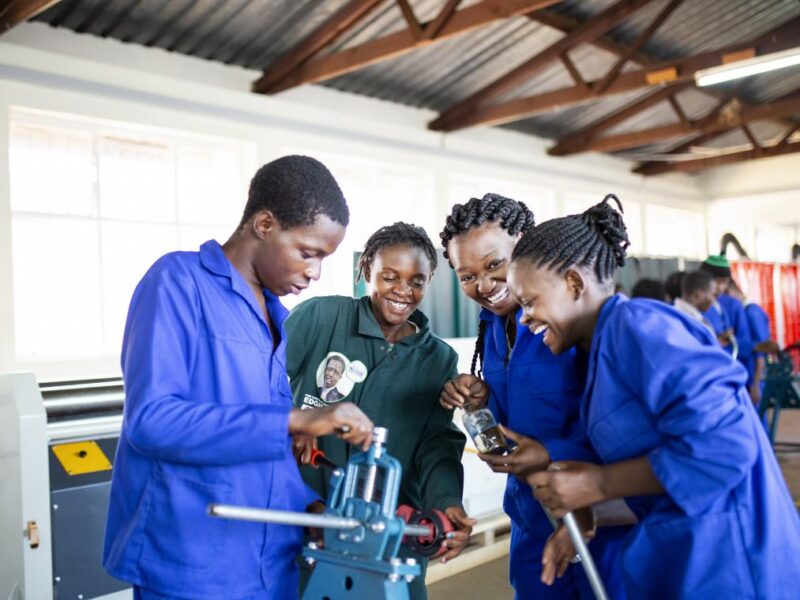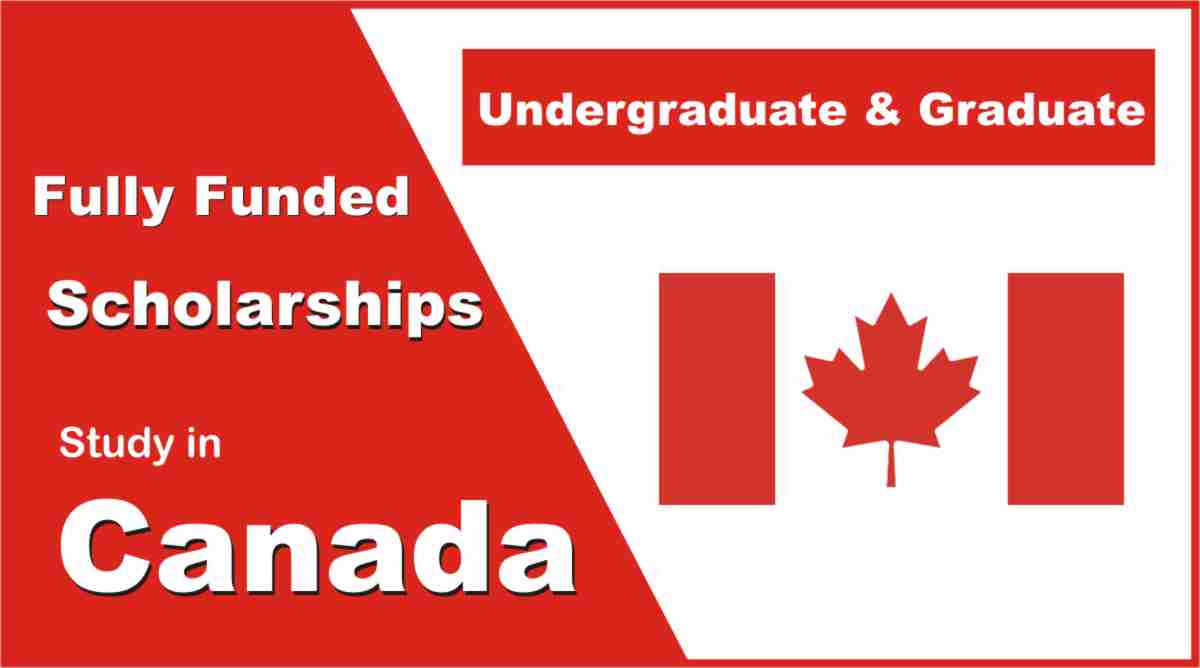Germany’s world-renowned vocational training system, known as Ausbildung, offers Nigerians a unique opportunity to gain practical skills, earn a salary, and build a career in one of Europe’s strongest economies. In 2025, these tuition-free programs remain accessible to international students, including those from Nigeria, with no tuition fees at public vocational schools and a monthly stipend to support living expenses. This article provides a comprehensive, up-to-date guide to free vocational study programs in Germany, tailored specifically for Nigerians. Drawing from expert insights, real-world examples, and the latest data, I’ll walk you through the opportunities, requirements, and steps to succeed, offering a fresh perspective on how these programs can transform your future.
As someone who’s researched Germany’s education system and spoken with Nigerian students who’ve thrived in Ausbildung programs, I’m excited to share practical advice and insider tips. Whether you’re passionate about nursing, IT, or engineering, Germany’s dual training system combines classroom learning with hands-on experience, making it an ideal path for career-focused Nigerians. Let’s dive into the details and explore how you can seize this opportunity in 2025.
Why Choose Vocational Training in Germany?
Germany’s Ausbildung system is a global model for vocational education, blending theoretical learning at vocational schools (Berufsschulen) with practical training at companies. Here’s why it’s a game-changer for Nigerians:
-
Tuition-Free Education: Public vocational schools charge no tuition fees, making Ausbildung accessible to international students.
-
Earn While You Learn: Trainees receive a monthly stipend, typically €800–€1,500, increasing each year, to cover living expenses.
-
High Employability: Graduates are highly sought after, with over 80% receiving job offers from their training companies.
-
Diverse Career Paths: With over 325 recognized programs, options span healthcare, IT, engineering, hospitality, and more.
-
Path to Residency: Completing an Ausbildung allows Nigerians to stay in Germany for up to 18 months to seek qualified employment, potentially leading to long-term residency.
In 2025, Germany’s demand for skilled workers is higher than ever, driven by an aging population and growth in sectors like healthcare and technology. For Nigerians, this is a chance to gain globally recognized qualifications while immersing yourself in German culture.
What’s New for Vocational Training in 2025?
Germany continues to enhance its vocational training system to attract international talent. Key updates for 2025 include:
-
Increased Stipends: The minimum training salary is €990 gross per month to secure livelihoods, with many programs offering €1,100–€1,500.
-
Simplified Visa Processes: The German government has streamlined visa applications for vocational training, with faster processing times (2–3 months) for non-EU applicants.
-
Focus on In-Demand Fields: Nursing, IT, and renewable energy programs are prioritized due to labor shortages, offering Nigerians better acceptance chances.
-
Enhanced Language Support: More preparatory German language courses are available, some government-funded, to help trainees meet the required B1/B2 proficiency.
-
Digital Application Platforms: Portals like Make it in Germany and the Federal Employment Agency’s job board have improved search filters for international applicants.
These changes make 2025 an ideal year for Nigerians to pursue Ausbildung programs, with stronger support systems and clearer pathways.
Types of Vocational Training Programs
Germany offers two main types of vocational training, both tuition-free at public institutions:
-
Dual Vocational Training (Duale Ausbildung):
-
Combines practical training at a company (3–4 days/week) with theoretical classes at a vocational school (1–2 days/week).
-
Duration: 2–3.5 years.
-
Popular fields: Nursing, IT specialist, mechatronics, electrician, hospitality.
-
Benefits: Monthly stipend, hands-on experience, high job placement rates.
-
-
School-Based Vocational Training (Schulische Ausbildung):
-
Conducted primarily at vocational schools with extended internships in companies.
-
Duration: 1–3 years.
-
Common in healthcare (e.g., nursing, medical assistant) and design fields.
-
Note: Typically no stipend, but living costs can be supported via BAföG grants for eligible non-EU students.
-
Table: Dual vs. School-Based Vocational Training
|
Training Type |
Duration |
Stipend |
Structure |
Best For |
|---|---|---|---|---|
|
Dual Vocational Training |
2–3.5 years |
€800–€1,500/month |
3–4 days at company, 1–2 days at school |
Hands-on learners, immediate work experience |
|
School-Based Training |
1–3 years |
Usually none (BAföG possible) |
Mostly classroom with internships |
Theory-focused learners, healthcare fields |
Eligibility Requirements for Nigerians
To qualify for Ausbildung programs in Germany, Nigerians must meet specific criteria:
-
Age: At least 17–18 years old (some programs, like nursing, accept older applicants).
-
Education: Minimum of 9 credit passes in WAEC or equivalent (e.g., NECO, SSCE). A school-leaving certificate equivalent to Germany’s Hauptschule is often sufficient.
-
German Language Proficiency: B1 or B2 level required for most programs; nursing typically requires B2. A2 may suffice for initial applications, with further training in Germany.
-
Financial Proof: For school-based training, proof of €959/month (e.g., blocked bank account) is needed. Dual training stipends often cover this requirement.
-
Visa: A National Type D visa for vocational training, applied for at the German embassy in Abuja or Lagos.
No prior work experience is required, but relevant skills or enthusiasm for the chosen field can strengthen applications.
Application Process: Step-by-Step Guide
Navigating the Ausbildung application process requires careful planning. Here’s how Nigerians can apply in 2025:
-
Research Programs:
-
Explore fields like nursing, IT, or mechatronics via platforms like Make it in Germany (make-it-in-germany.com), Planet Beruf, or Ausbildung Plus.
-
Identify programs matching your skills and career goals.
-
-
Learn German:
-
Achieve at least B1 proficiency (B2 for nursing). Enroll in courses at local institutes in Nigeria or online via Goethe-Institut.
-
A2 certificates are acceptable for initial applications, with preparatory courses available in Germany.
-
-
Find a Training Company:
-
Use job boards like the Federal Employment Agency’s portal or Life-in-Germany.de to find companies offering Ausbildung positions.
-
Contact companies directly or work with agencies like Global Opportunities in Nigeria.
-
-
Prepare Documents:
-
CV and cover letter (preferably in German).
-
WAEC/NECO certificates (translated into German).
-
German language certificate (B1/B2 or A2 for initial applications).
-
Valid passport.
-
-
Apply to a Vocational School:
-
Once accepted by a company, enroll in the partnered Berufsschule. Some schools assist with applications.
-
-
Apply for a Visa:
-
Submit your application at the German embassy in Abuja or Lagos, including your training contract, language certificate, and financial proof (if required).
-
Processing takes 2–3 months; apply early to start by August/September 2025.
-
-
Track Your Application:
-
Use the embassy’s online portal or contact Make it in Germany advisors for support.
-
Popular Ausbildung Programs for Nigerians
Germany offers over 325 vocational programs, but some are particularly in demand and accessible for Nigerians:
-
Nursing: High demand due to Germany’s aging population. Stipends range from €1,341–€1,503/month. Requires B2 German.
-
IT Specialist: Covers programming, system administration, and network management. Ideal for tech-savvy applicants.
-
Mechatronics: Combines mechanics and electronics, with strong demand in automotive and manufacturing sectors.
-
Hospitality Management: Includes roles in hotels and restaurants, perfect for those with customer service skills.
-
Electrician: In demand for infrastructure projects, offering stable career paths.
Table: Top Ausbildung Programs and Stipends (2025)
|
Program |
Duration |
Average Stipend (Monthly) |
Key Skills Needed |
|---|---|---|---|
|
Nursing |
3 years |
€1,341–€1,503 |
Empathy, B2 German, teamwork |
|
IT Specialist |
3 years |
€900–€1,200 |
Analytical skills, programming |
|
Mechatronics |
3–3.5 years |
€950–€1,300 |
Technical aptitude, precision |
|
Hospitality Management |
2–3 years |
€800–€1,100 |
Communication, customer service |
|
Electrician |
3–3.5 years |
€900–€1,200 |
Problem-solving, manual dexterity |
Real-World Example: A Nigerian’s Ausbildung Journey
Chinedu, a 22-year-old from Lagos, completed a nursing Ausbildung in 2024. After passing his WAEC with 9 credits, he enrolled in a B2 German course at a local institute in Nigeria. “Learning German was tough, but online resources and practice with native speakers helped,” he said. Chinedu applied for a nursing program through Life-in-Germany.de, securing a contract with a hospital in Munich. His stipend of €1,400/month covered his rent and living costs. “The hospital provided a shared apartment for €300/month, and my colleagues were supportive,” he shared. After graduating, Chinedu was offered a permanent nursing position and is now applying for residency.
Chinedu’s advice: “Start learning German early and research companies thoroughly. Agencies can help, but check their reputation. The hard work is worth it for the career and life in Germany.”
Expert Tips for Success
Based on insights from career advisors and former Ausbildung trainees, here are tips for Nigerians:
-
Master German Early: Begin with A2 and aim for B1/B2 before applying. Use Goethe-Institut or local language schools in Nigeria.
-
Use Reputable Platforms: Apply through trusted portals like Make it in Germany, EURES, or Federal Employment Agency to avoid scams.
-
Tailor Your Application: Highlight relevant skills in your CV and cover letter, even if you lack formal experience. Show enthusiasm for the trade.
-
Network with Nigerians in Germany: Join communities like Nigerian student groups on social media or Goethe-Institut events to gain insights and support.
-
Plan Finances: Save €1,000–€2,000 for initial costs (e.g., visa fees, travel). Dual training stipends often cover ongoing expenses.
Challenges and Solutions
-
Language Barrier: German proficiency is critical. Solution: Enroll in intensive courses and practice with apps like Duolingo or native speakers.
-
Finding a Training Company: Competition for spots can be high. Solution: Apply to multiple companies and use agencies like Global Opportunities for guidance.
-
Cost of Living: Germany’s living costs average €900–€1,000/month. Solution: Choose dual training for stipends or apply for BAföG for school-based programs.
-
Cultural Adjustment: Adapting to German work culture can be challenging. Solution: Attend integration workshops offered by Welcome Centers.
Worker Rights and Support
Nigerian trainees in Germany are entitled to:
-
Fair Stipends: €800–€1,500/month, increasing yearly.
-
Work Hours: Up to 20 hours/week of additional work is allowed for dual trainees.
-
Social Security: Access to healthcare and social benefits via contributions.
-
Support Services: Free counseling from the Federal Employment Agency and Make it in Germany advisors.
If issues arise, contact the Federal Office for Migration and Refugees (BAMF) or Goethe-Institut for assistance.
Table: Application Costs and Processing Times (2025)
|
Requirement |
Cost |
Processing Time |
Where to Apply |
|---|---|---|---|
|
National Type D Visa |
€75–€100 |
2–3 months |
German embassy (Abuja/Lagos) |
|
German Language Course |
€200–€500 (in Nigeria) |
Varies |
Goethe-Institut, local institutes |
|
Blocked Bank Account |
€959/month (if required) |
1–2 weeks |
Approved banks (e.g., Fintiba) |
Why Ausbildung for Nigerians?
Germany’s Ausbildung programs offer Nigerians a cost-effective path to a global career without the burden of tuition fees. With stipends, strong job prospects, and a chance to experience German culture, it’s an opportunity to build a stable future. The 2025 updates make the process more accessible, especially for high-demand fields like nursing and IT. Plus, the cultural exchange and language skills gained can open doors to further education or international opportunities.
Call to Action
Ready to start your Ausbildung journey in Germany? Begin researching programs on Make it in Germany or Life-in-Germany.de, enroll in a German language course, and apply for a training position today. Don’t delay—application deadlines for August/September 2025 start dates are approaching. Visit make-it-in-germany.com or contact the German embassy in Nigeria to take your first step toward a rewarding career!
Frequently Asked Questions
-
What is the minimum educational requirement for Ausbildung in Germany?
A WAEC certificate with 9 credit passes or equivalent is typically sufficient. -
Do I need to speak German fluently?
B1 or B2 proficiency is required for most programs; A2 may suffice for initial applications with further training in Germany. -
Are Ausbildung programs really free?
Yes, public vocational schools charge no tuition fees. Dual training includes a stipend, while school-based programs may offer BAföG grants. -
Can I stay in Germany after completing Ausbildung?
Yes, you can stay for up to 18 months to seek qualified employment, with potential for long-term residency. -
Which fields are in high demand for Nigerians?
Nursing, IT, mechatronics, and electrician roles are highly sought after. -
How much is the stipend for Ausbildung?
Stipends range from €800–€1,500/month, increasing yearly. Nursing offers €1,341–€1,503. -
Can I work part-time during Ausbildung?
Yes, up to 20 hours/week in a job unrelated to your training. -
How do I find a training company?
Use job boards like Make it in Germany, Planet Beruf, or agencies like Global Opportunities. -
What visa do I need for Ausbildung?
A National Type D visa for vocational training, applied for at the German embassy. -
Can I apply without a training contract?
No, a contract with a company is required before applying for a visa or enrolling in a Berufsschule.
This guide equips Nigerians with the knowledge and tools to pursue free vocational training in Germany in 2025. With dedication to learning German and strategic planning, you can unlock a world of career opportunities in one of the world’s strongest economies. Start your journey today!










